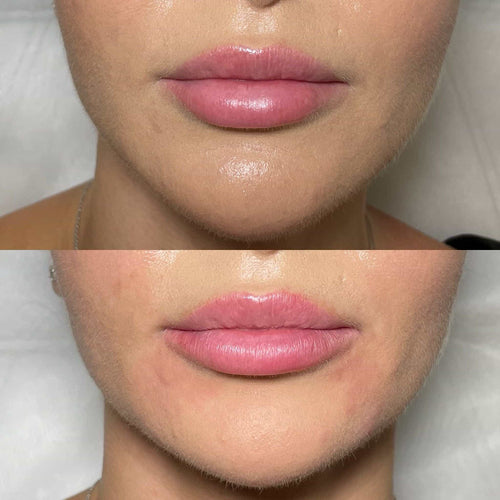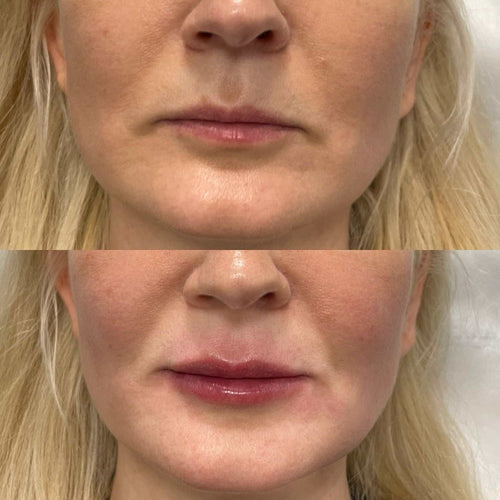How Old Do U Have To Be To Get Lip Filler Uk
Book a Dermal Filler Session with Dr. Laura Geige at It’s Me and You Clinic
Legality and Minimum Age
Age Restrictions in UK
In the United Kingdom, there are no specific laws that directly prohibit lip fillers for individuals under a certain age.
However, the UK’s regulations governing cosmetic procedures heavily emphasize professional standards and patient safety.
The main legal framework relevant to this issue is the Medicines Act 1968, which places restrictions on the supply and administration of medicinal products, including dermal fillers.
Although there isn’t a set minimum age for lip filler treatments, practitioners are legally obligated to ensure they only perform procedures on individuals who are deemed competent to understand the risks and benefits involved.
This means that practitioners generally follow a professional ethical guideline of not treating anyone under 18 years old.
Factors influencing this decision include:
• **Maturity Level:** Professionals assess whether the individual can make informed decisions about their health and appearance.
• **Developmental Stage:** They consider the potential for complications and how they might affect a young person’s developing face.
•
**Parental/Guardian Consent:** For minors, consent is usually required from a parent or legal guardian who understands the procedure and its implications.
While age isn’t strictly regulated, it’s essential for potential clients to have realistic expectations, discuss all concerns with a qualified practitioner, and prioritize their health and well-being.
Guidance from Regulatory Bodies
In the United Kingdom, there is no specific law stating a minimum age for cosmetic treatments like lip fillers.
However, the legal framework surrounding these procedures relies heavily on guidance from regulatory bodies and ethical considerations.
The General Medical Council (GMC) provides guidelines for doctors performing aesthetic procedures, emphasizing patient safety and well-being as paramount. They advise against treating individuals under the age of 18 without exceptional circumstances and parental consent.
Similarly, the Joint Council for Cosmetic Practitioners (JCCP) offers guidance for non-medical practitioners who administer cosmetic treatments. While they don’t set a specific minimum age, their code of conduct stresses the importance of assessing patients’ maturity, understanding of risks, and ability to make informed decisions.
Most reputable clinics in the UK adhere to these guidelines, typically refusing treatment to individuals under 18 unless there are extenuating circumstances and parental consent is obtained. This approach aims to protect young people from potential complications and ensure they have a full understanding of the risks and benefits involved.
It’s crucial for anyone considering lip fillers, regardless of age, to thoroughly research qualified practitioners, understand the procedure, and discuss their expectations and concerns openly.
Factors Influencing Clinic Decision
Consent and Maturity Assessment
In the United Kingdom, there are no specific laws dictating a minimum age for lip fillers.
This means the decision ultimately rests with individual clinics and practitioners.
However, ethical considerations and professional guidelines heavily influence clinic decisions regarding patient age and consent.
Here’s a breakdown of the key factors involved:
<
Clinic Policies:**

Most reputable clinics will have their own policies outlining minimum ages for various treatments, including lip fillers.
These policies are often based on factors like the patient’s maturity level, ability to understand the procedure’s risks and benefits, and the potential for complications.
It’s important to note that these policies can vary between clinics, so it’s essential to check with the specific provider you’re interested in.

Practitioner Judgement:
Even within a clinic with established policies, individual practitioners may use their professional judgement to assess a patient’s suitability for lip fillers.
They will consider the patient’s overall health, any pre-existing medical conditions, and their understanding of the procedure.
Consent:
Informed consent is crucial for any cosmetic procedure, including lip fillers. This means the patient must fully understand the nature of the treatment, potential risks and benefits, alternatives, and expected results.
Practitioners will typically discuss these aspects in detail with the patient before proceeding with the treatment.
In some cases, a minor may require parental or legal guardian consent for a cosmetic procedure like lip fillers.
Maturity Assessment:
Assessing a patient’s maturity level is a subjective process, but practitioners generally consider factors like:
• **Cognitive Development:** Ability to understand and comprehend complex information.
• **Emotional Maturity:** Capacity to handle potential risks, anxieties, and outcomes of the procedure.
• **Decision-Making Abilities:** Independent thought, ability to weigh options, and make informed choices.
It’s important to remember that every individual develops at their own pace. A practitioner may opt for a more thorough assessment if they have any doubts about a patient’s maturity level.
Ethical Considerations:
Ethical guidelines for cosmetic procedures emphasize the importance of patient well-being, avoiding undue influence, and considering psychological factors.
Practitioners are expected to prioritize patient safety and avoid performing treatments that may be harmful or inappropriate given the individual’s circumstances.
Medical Considerations
Several factors influence a clinic’s decision regarding lip filler treatments for individuals under the age of 18 in the UK.
Legally, it is against the law to administer cosmetic treatments like lip fillers to anyone under the age of 18 without parental consent in the UK. This reflects a commitment to protecting minors from potentially harmful procedures before they are deemed legally and emotionally mature enough to make informed decisions about their appearance.
Beyond legal restrictions, clinics often consider several medical factors when assessing potential candidates for lip fillers, regardless of age.
These include:
- Overall Health:**
Pre-existing medical conditions, allergies, or medications can influence the safety and suitability of lip filler treatments.
- Skin Type and Condition:**
Certain skin types may react differently to fillers, and existing skin conditions like acne or eczema could complicate the procedure.
Schedule a Dermal Filler Consultation with Dr. Laura Geige
- Medical History:**
A history of bleeding disorders or a tendency towards scarring may necessitate careful consideration and potentially alternative treatment options.
- Expectations and Goals:
Clinics prioritize realistic expectations and open communication with patients. They carefully discuss desired outcomes, potential risks and benefits, and the natural limitations of lip fillers to ensure patient understanding and avoid disappointment.
While lip fillers can enhance facial features, it’s crucial to approach them responsibly. Clinics play a vital role in safeguarding patient well-being by adhering to legal guidelines and prioritizing thorough medical assessments.
They emphasize the importance of informed consent, realistic expectations, and comprehensive aftercare instructions to ensure positive and safe experiences for all patients.
Important Considerations for Minors Parental Consent Requirements
Long-Term Implications
Important considerations for minors seeking cosmetic procedures like lip filler involve both legal and ethical aspects. While the specific age requirements vary by region, a key factor is parental consent.
Arrange a Dermal Filler Consultation at It’s Me and You Clinic with Dr. Laura Geige
In the UK, there are no specific laws dictating the minimum age for lip fillers. However, it’s highly recommended that anyone under 18 years old obtains their parent or guardian’s informed consent before undergoing any cosmetic procedure, including lip filler.
Here’s a breakdown of important considerations:
-
Parental Consent: A legal guardian must accompany the minor to the consultation and provide written consent for the procedure. This ensures that the parents are aware of the potential risks and benefits associated with lip fillers.
-
Minors’ Understanding: While parental consent is essential, it’s equally important to ensure the minor fully understands the nature of the procedure, potential side effects, and aftercare instructions.
-
Professional Judgement: Qualified practitioners will assess the maturity and understanding of a minor before agreeing to perform any cosmetic treatment. They may decline treatment if they deem the individual too young or lacking in comprehension.
-
Long-Term Implications: Lip filler is not permanent and requires repeat treatments. It’s crucial for minors, particularly those going through puberty, to consider the long-term implications of altering their appearance.
-
Alternative Solutions: Practitioners should explore alternative solutions with minors who are hesitant about lip fillers, such as using makeup techniques to enhance their lips.
Ultimately, the decision of whether or not a minor undergoes lip filler should be made in consultation between parents, the minor, and a qualified medical professional. The emphasis should always be on the health and well-being of the child, prioritizing informed consent and responsible decision-making.
Making Memories London Aron Marquez Fashionably Balanced Kindra Mann Elizabeth Joy Photo Tattoo Culture Magazine
- New Patient Treatment Near Badshot Lea, Surrey - December 28, 2024
- How Old Do U Have To Be To Get Lip Filler Uk - December 15, 2024
